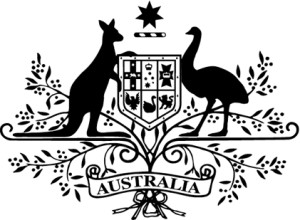 Phone scammers pose as Federal Government employees
Phone scammers pose as Federal Government employees
Consumer Protection’s general advice line and regional offices have been getting lots of reports from Western Australians who have received a phone call from scammers claiming to be from the Federal Government. The caller offers either a rebate or refund of overcharged fees.
The amount being offered seems to consistently be around $7,000 and the consumer is asked to pay hundreds of dollars in order to obtain the money owed to them. Wire transfer (Western Union or Moneygram) seems to be the preferred payment method, although they may ask for payment via an electronic voucher like Ukash, direct bank transfer or credit card.
Some of the reports describe the callers as ‘well spoken’. Others say the number given to call back on appears to be in New South Wales – however, we know that Australian pre-fix phone numbers can be re-routed to an overseas number. Some people have received a follow-up call when they did not phone back using the number given.
It is also understood that the scammers may be playing on a recent Federal Court ruling that ordered National Australia Bank (NAB) to pay back late payment fees. But consumers who wish to join that class action need to do so by contacting Financial Redress (www.financialredress.com.au) and will NOT receive an unexpected phone call inviting them to be part of it.
This latest phone scam is simply a new variation of previous phone scams offering to help consumers reclaim bank fees, obtain Australian Tax Office refunds or other Government rebates in return for up-front fees.
In addition to these there are the ongoing ‘tech support’ scams, where the caller pretends to be from Microsoft, Telstra, Big Pond etc. wanting access to your computer. They often get you to log on to a website that allows them to connect remotely supposedly to help with a problem like a virus or upgrading software. As a result we have seen tech support scam victims have their bank accounts raided.
Unfortunately, and in spite of our frequent and numerous warnings over the last decade, there are still members of the community losing money to phone scams. In 2014 more than 100 people have reported to WA ScamNet that they have fallen victim to phone scams and between them they lost about $170,000 in total.
So, if you receive an unexpected phone call and the caller says they are from a government agency, official organisation or reputable company, don’t trust that they are who they say they are.
If a cold caller requests personal or financial details, or payment of any kind, bring the conversation to an end by getting their name and number and advising you will be checking with the organisation before handing over secure information or committing to anything.
Next you need to follow these steps to verify if it’s authentic…
-
Independently source the government department or company’s contact details from the phone book, their official website, your last statement or letter from them. DON’T use contact details provided by the caller because if it’s a scam you are simply calling the scammers chosen number so that they can answer how they choose e.g. “Hello Federal Government, Canberra.”
-
Call the organisation directly to ask if the call was genuine.
-
Check on the WA ScamNet website for any warnings or information.
Phone scam prevention tips:
-
NEVER confirm or provide personal details, credit card numbers or other account information over the phone unless you initiated the call and can verify the purpose for which you are providing that information.
-
DO NOT pay up-front fees to receive money in return (ask for it be deducted from what you are owed instead) and know that Australian government agencies and official organisations do not use wire transfer as a payment method.
-
SAY NO and hang up if a cold caller wants remote access to your computer even if they claim to be from a reputable IT or telecommunications company.
Remember, you can still receive scam calls even if you have a private number or have your number listed on the Do Not Call register. Scammers can obtain your number fraudulently from black-market sources.



